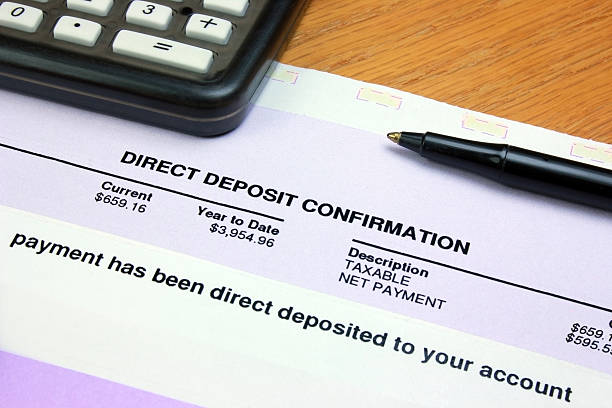You work hard for your money, and we help you get paid 2 days sooner! No more waiting until payday.
How to Catch Up on Bills When You Fall Behind
Getting back on track when behind on bill payments can seem like an impossible task.
According to the Money and Mental Health Policy Institute, lack of financial planning often leads to stress and anxiety that can further impact finances. Therefore, it is crucial to develop a plan to either save money or increase income if you find yourself in a position where you are unable to pay bills. First Community Credit Union has compiled some strategies to help if you develop a plan to reach your financial goals:
Create a monthly budget
Setting a monthly budget and then sticking to it is one of the best ways to stay ahead on bills. One way you can manage your income and make it easier to pay monthly bills is by budgeting one month ahead. For example, instead of paying all your December bills with the income you earn in December, begin saving a set amount of money with each paycheck so that you are eventually paying December bills with income earned in November. This way, you’ll be living off last month’s income rather than pinching pennies trying to make ends meet from paycheck to paycheck.
Start paying small bills first
If you’re struggling with your bills, you may find that eliminating smaller expenses is an easier way to start. Begin by writing down the lenders, how much you owe, the minimum monthly payment and how far are you behind. Identify the expenses that will be easiest for you to pay back first and focus on those. Taking steps to make the list of creditors you owe money to will make getting caught up feel more manageable and will help move you towards better financial health in the future.
Work out a payment plan with your creditors
Explaining your financial situation to your creditors is a smart way to start a conversation about working out a payment plan. Most companies, including utility companies, are usually willing to work with you to figure out an appropriate payment plan based on what you can afford. It may take some time to get caught up on bigger bills, but establishing a payment plan will provide a path for you to pay back creditors in a timely manner.
Get rid of unnecessary expenses
Start auditing your finances to determine which expenses are not essential. Cable, gym memberships and streaming service subscriptions are all good examples of expenses that can be cut out until you are in a better financial situation. Begin canceling or pausing services that are deemed unnecessary expenses to see how quickly you can end your billing cycle. This will give you extra money to get caught up on bills.
Pick up a second job
Picking up a second job will give you extra income to use towards paying back bills or build up your savings account. Drive for a rideshare company like Uber or Lyft or begin working nights at a bar or restaurant to quickly earn extra cash. If you can work overtime at your current job, speak to your employer about adding extra hours into your work weeks. Make a list of your talents and interests and then make another list of jobs where you could utilize your talents and interests to make more money. Finding creative ways to earn extra income will help put you on a path to achieve your financial goals more quickly.
You may still find that you are feeling overwhelmed even after following all these tips, and that is normal. The most important thing you can do is not give up and remain disciplined as you work towards your financial goals.
If you need advice, First Community Credit Union is here to help you develop additional strategies for getting out of debt and provide resources to support you.






